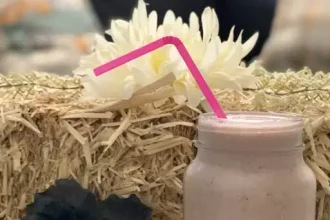When I was thirteen years old, my mom called me into her darkened bedroom, asked me to sit next to her on the bed, and told me who to call when I found her body.
A few months later, I was awakened one morning by a friend of my mom’s. My mom had been taken to the hospital during the night.
I later found out that my mom had attempted suicide, but had changed her mind and vomited the pills that she had taken.
My mom made me promise to never tell my siblings.
My mom would cycle between periods of depression and periods of irritability.
When she was depressed, she would stay in her room with the lights off and sleep a lot.
When she was irritable, she would yell and say mean things and throw stuff.
My mom would find excuses to not take antidepressant medication.
I remember a few brief periods when she would take antidepressants and her mood would improve; sometimes she would even remark about how much better she felt. But ultimately she would stop taking them.
My mom’s depression lasted the rest of her life.
After a difficult divorce and the death of her own mother, my mom checked herself into a psych hospital.
In the years that followed, the depression prevented her from working, caused her to isolate herself from her friends and family, and caused her to neglect her physical health which eventually led to her death, something my therapist refers to as passive suicide.
So how has being raised by a parent with depression affected me?
I was very angry with my mom for wanting to kill herself and leave her children without a mother, especially since we weren’t very close to our father at the time.
I kept this anger to myself and never overtly shared it with my mom.
In retrospect, I wish I had told a teacher, a church leader, or my dad about what I was experiencing at home. I could have found some support for myself.
I was very protective of my younger siblings.
When my mom would come home from work and go to her bedroom, I would make sure that the family had dinner to eat and that my siblings had help with their homework.
When my mom would fall asleep in front of the TV, I would wake her up and clean her contact lenses for her.
The positive outcome is that I learned to be responsible. However, it also meant I didn’t get to be a typical teenager.
The littlest thing that I said or did would set my mom off, and I often felt like I was walking on eggshells.
I tried to prevent my mom’s irritable outbursts by being as perfect as I could be. It was my way of protecting myself and my siblings. Despite my efforts, there were still a lot of irritable outbursts.
When I graduated from high school, I went to college a thousand miles away. It was time for me to take care of myself.
I graduated with a bachelor’s degree in family science. I wanted my future family to be different from the one I was raised in, and I figured four years of studying families might help. (It did!)
Toward the end of my college years, I finally realized that I needed some therapy to work through all of my issues.
My relationship with my mom was the topic of many of my therapy sessions. I had to work through my feelings about myself and determine how I could have a relationship with my mom that wasn’t unhealthy for me.
I had to un-learn old behaviours that had been modelled and reinforced, and learn new behaviours that were uncomfortable but desirable.
Instead of claiming I was always right, I learned how to admit when I’d made a mistake and how to apologize.
Instead of blaming others, I learned how to accept responsibility for my actions. Instead of looking outwardly for validation, I had to learn that I am worthy of love and belonging even if I’m not perfect.
I’ve been working on these behaviours for over two decades and I still have work to do, but I’m better than I used to be. Recently the work of Dr Brené Brown has really resonated with me and helped me to have a healthier perspective on myself.
I know from experience the dangers of secrets.
I remember getting a lecture from my mom about how we were not to talk about our family to anyone outside the family.
Now that I have a family of my own, I teach that it’s okay to have surprises, but that we don’t keep secrets.
It’s interesting to contrast my experience with the experience of one of my siblings. We both responded in unhealthy, but very different, ways.
I responded to my mom’s depression by seeking perfection. For example, when I served dinner, I always made sure the food on my mom’s plate looked as pretty as possible.
On the other hand, my sibling was defiant, even as a very young child, and engaged in risky behaviour and substance abuse once she was a teenager and into adulthood.
In retrospect, I have a lot of compassion for my mom who was a single mother raising young children and battling her own demons, without much of a support system.
I know it must not have been easy for her and she was probably doing the best she could.
Getting to where I am now has been a long and difficult road.
I’m continuously learning how to have healthy relationships. I have strong opinions about getting help for mental illness. And I believe in sharing our stories so others can know they are not alone, and that there is hope.
















